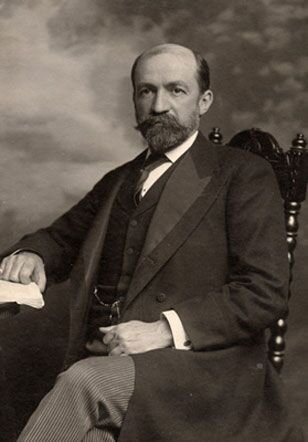
Samuel Gibson Dixon
March 28, 1851 - February 26, 1918Dr. Samuel Dixon was a pioneering bacteriologist perhaps best known for his work as head of the Pennsylvania Department of Public Health, where he introduced sanitary and hygienic reforms, including water quality policies, that set new standards for government public health programs and saved thousands of lives.
After graduating from the University of Pennsylvania Medical School in 1886, Dixon traveled to Europe, where he studied with some of the leading figures in bacteriology, a field which was then in its infancy. During his years at Drexel University, Dixon transformed their Natural Science Academy from a “cramped, antiquated” institution into a “great modern museum.”
In 1905, Dixon was appointed to head the fledgling Pennsylvania Department of Public Health, a position that he held until his death. His accomplishments in public health are described by Scientific Monthly as “the largest and most efficient health department in any state of the union.” His research and work addressed hygiene and sanitation, a relatively new concept for protecting public health, including the critical importance of guarding the water supply. These new policies shaped the future of water quality in the commonwealth.
